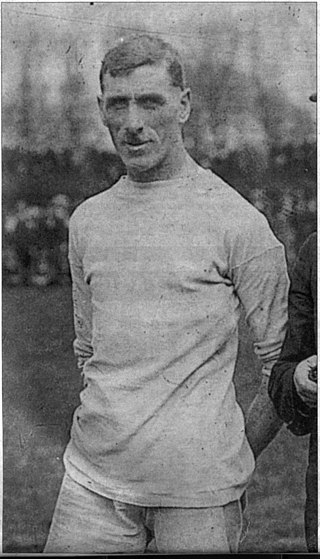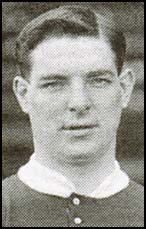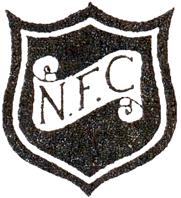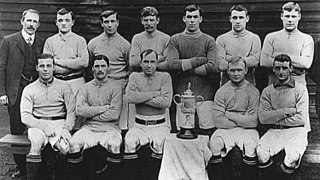Related Research Articles

Hereford United Football Club was an association football club based in Hereford, England. They played at Edgar Street for their entire history. They were nicknamed 'The Whites' or 'The Lilywhites', after their predominantly white kit, or 'The Bulls' after the Hereford cattle breed. They contested A49 derby games with Shrewsbury Town.

Football is the most popular sport in England. England is home to the world's first football league, the oldest national governing body, and the oldest national knockout competition. The first modern rules for the game were established in England in 1863. England is one of the oldest national football teams, having played in the first international match in 1872. England won the FIFA World Cup in 1966, and has qualified for the World Cup 16 times. England has more football clubs than any other country, including the world's first club, Sheffield F.C., and the world's oldest professional club, Notts County. England's top domestic league, the Premier League, is one of the most popular and richest leagues in the world. The British Empire's cultural power spread the rules of football to areas of British influence. England the home of football, where the first modern set of rules for the code were established in 1863, which were a major influence on the development of the modern Laws of the Game. With over 40,000 association football clubs, England has more clubs involved in the code than any other country. England hosts the world's first club, Sheffield F.C.; the world's oldest professional association football club, Notts County; the oldest national governing body, the Football Association; the joint-oldest national team; the oldest national knockout competition, the FA Cup; and the oldest national league, the English Football League. It also has 31% of the population interested in Football. Today England's top domestic league, the Premier League, is one of the most popular and richest sports leagues in the world, with five of the ten richest football clubs in the world as of 2022.

The captain of a football/soccer team, sometimes known as the skipper, is a team member chosen to be the on-pitch leader of the team; they are often one of the older or more experienced members of the squad, or a player that can heavily influence a game or has good leadership qualities. The team captain is usually identified by the wearing of an armband.

William Henry Meredith was a Welsh professional footballer. He was considered one of the early superstars of football due to his performances, notably for Manchester City and Manchester United. He won each domestic trophy in the English football league and gained 48 caps for Wales, for whom he scored eleven goals and won two British Home Championship titles. His favoured position was outside right, and his key skills were dribbling, passing, crossing and shooting. A dedicated and extremely fit professional, his habit of chewing on a toothpick during games made him instantly recognisable.

Enoch James West, nicknamed Knocker, was an English footballer who played as a centre forward for Nottingham Forest and Manchester United before being banned due to his part in the 1915 British football match-fixing scandal.
Addlestone & Weybridge Town Football Club, was an association football club based in Addlestone, England. Originally known as Addlestone Football Club, the club adopted its current name in 1980, reflecting a broader community identity.
Renton Football Club was a football club based in Renton, West Dunbartonshire, Scotland. Formed in 1872, it was a prominent team in the early history of Scottish football, and was one of the teams that featured in the first ever Scottish Cup fixture. It won the competition twice, in 1885 and 1888, and was also runners-up three times. Its 6–1 win against Cambuslang in 1888 is the joint record win in a Scottish Cup final.

The New Norfolk District Football Club, nicknamed The Eagles, is an Australian rules football club currently playing in the Southern Football League, in Tasmania, Australia.

Nunhead Football Club were an English football club from Nunhead, Greater London. The club were prominent in southern English non-league football prior to World War II, but ceased all playing activities at the end of the 1940–41 season, and formally folded in 1949.
Northfleet United Football Club was a football club based in Northfleet, Kent.
Edgar Underwood Bluff was an English professional association footballer who played as an inside forward for various clubs in the 1900s.
Andrew McCombie was a Scottish international footballer who played at right back for North East England rival clubs Sunderland and Newcastle United. He won the Football League championship with both clubs, and was twice on the losing side in the FA Cup final. He went on to have a long career as a coach with Newcastle.
The 1926–27 FA Cup was the 52nd staging of the world's oldest football cup competition, the Football Association Challenge Cup, commonly known as the FA Cup. Welsh club Cardiff City won the competition for the first time, beating Arsenal 1–0 in the final at Wembley. As of 2024, it is the only FA Cup title won by a club from outside England.

The 1905–06 FA Cup was the 35th staging of the world's oldest association football competition, the Football Association Challenge Cup. Everton won the competition for the first time, beating Newcastle United 1–0 in the final at Crystal Palace.
The 1905 English football bribery scandal was an event of corruption that surfaced at the conclusion of the 1904–05 football season in England. It centred on the accusations that Manchester City player Billy Meredith had offered a rival player from Aston Villa a bribe to purposely lose their final league match of the season between the teams.

Charles Robson was an English cricketer, who played first-class cricket as a wicket-keeper for Middlesex between 1881 and 1883, and for Hampshire from 1891 to 1906, for whom he served as captain for three years from 1900 to 1902. He was later associated with W. G. Grace's London County team. He was also secretary to Southampton St Mary's Football Club for one season, from 1895 to 1896, and was one of the founding directors of the company which was established in 1897 when the club changed its name to Southampton Football Club.
Peterborough & Fletton United F.C. was an English football club based in Peterborough, Cambridgeshire. The club existed until 1932 and played at London Road.

South Kirkby Colliery Football Club is a football club based in South Kirkby, West Yorkshire, England. The team play in the Sheffield & Hallamshire County Senior League Premier Division, the eleventh tier of the English football league system. Formed as South Kirkby the club were later adopted by the nearby colliery and eventually changed their name to South Kirkby Colliery.
Joseph O'Brien was a Scottish professional footballer who played as a full back in the Football League for Blackburn Rovers, in the Northern League for Aberdeen, and in the Southern League for Reading, Swindon Town and Brighton & Hove Albion. While a Reading player, he was selected for the Southern League representative XI.
During the 1905–06 English football season, New Brompton F.C. competed in the Southern League Division One. It was the 12th season in which the club competed in the Southern League and the 11th in Division One. The team began the season in poor form; they failed to score any goals in six of their first eight Southern League games. By the midpoint of the season, the team had won only three times and were close to the bottom of the league table. The team's form improved in the new year, with three wins in the first seven Southern League games of 1906, but they ended the season in similar fashion to how they had started it, failing to score in eight of the final nine league games. New Brompton finished the season in 17th place out of 18 teams in the division.
References
- 1 2 3 4 5 6 7 8 9 "The shambolic history of Southern United". The Football History Boys. 11 November 2021.
- ↑ "1905 results". Chelsea Football Club Results and Statistics.
- ↑ Southern United at the Football Club History Database
- ↑ Kerrigan, Colm (2004). Teachers and Football: Schoolboy Association Football in England, 1885–1915. Routledge. p. 144. ISBN 978-1913454579.